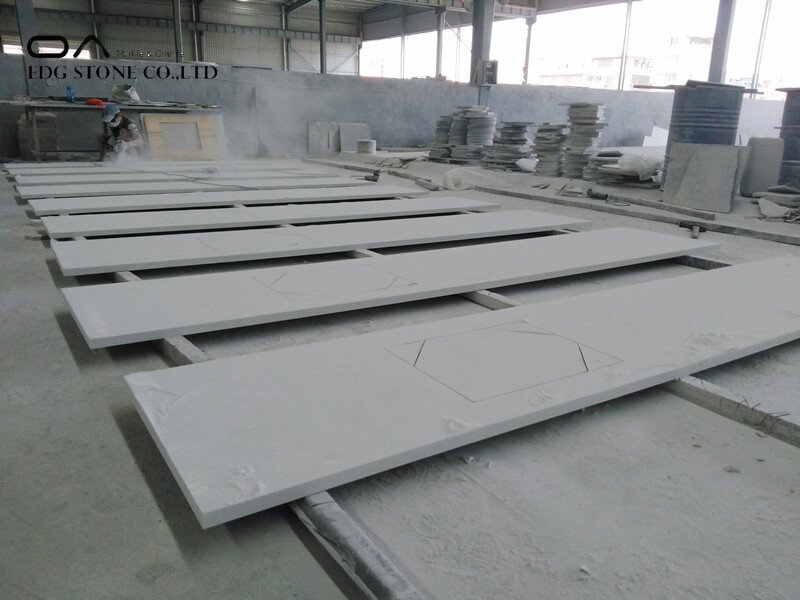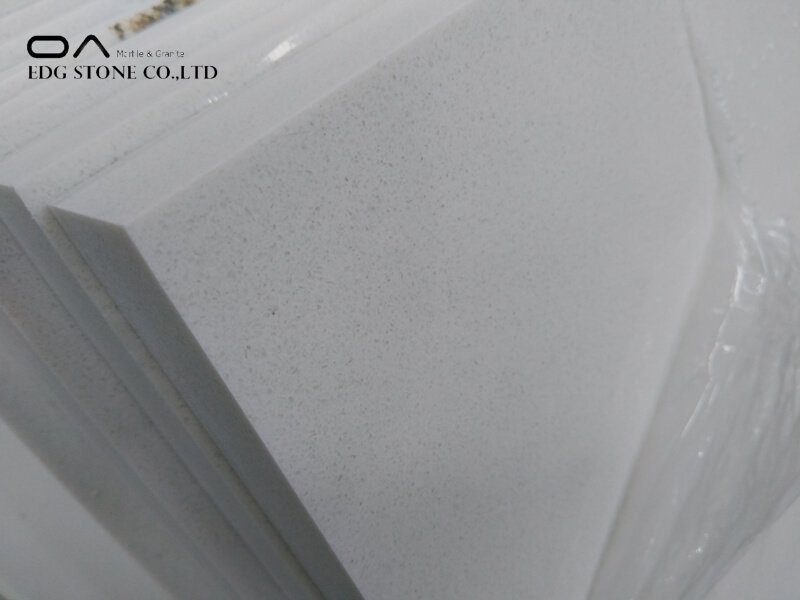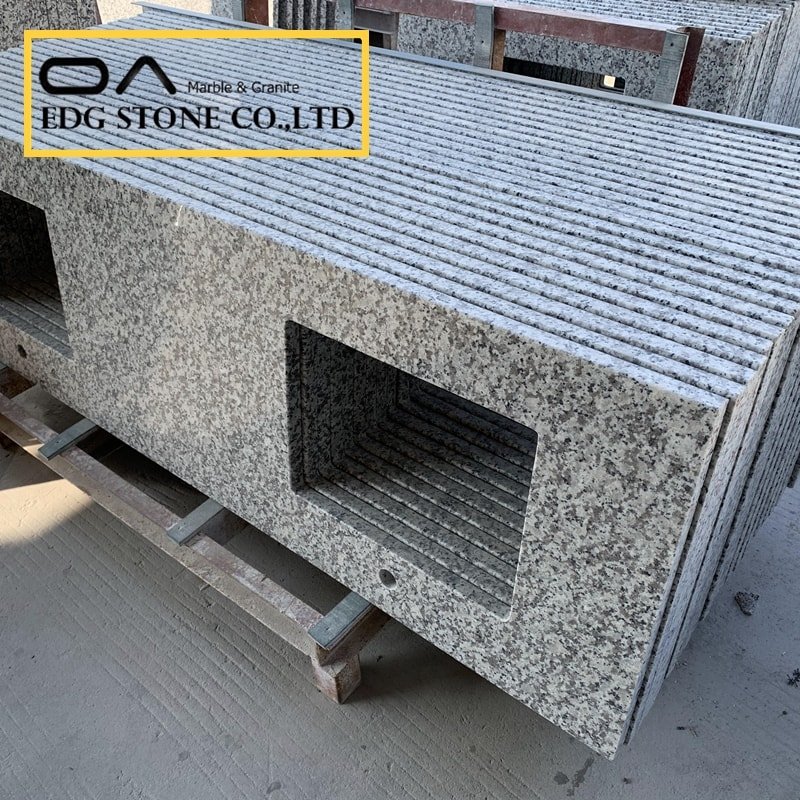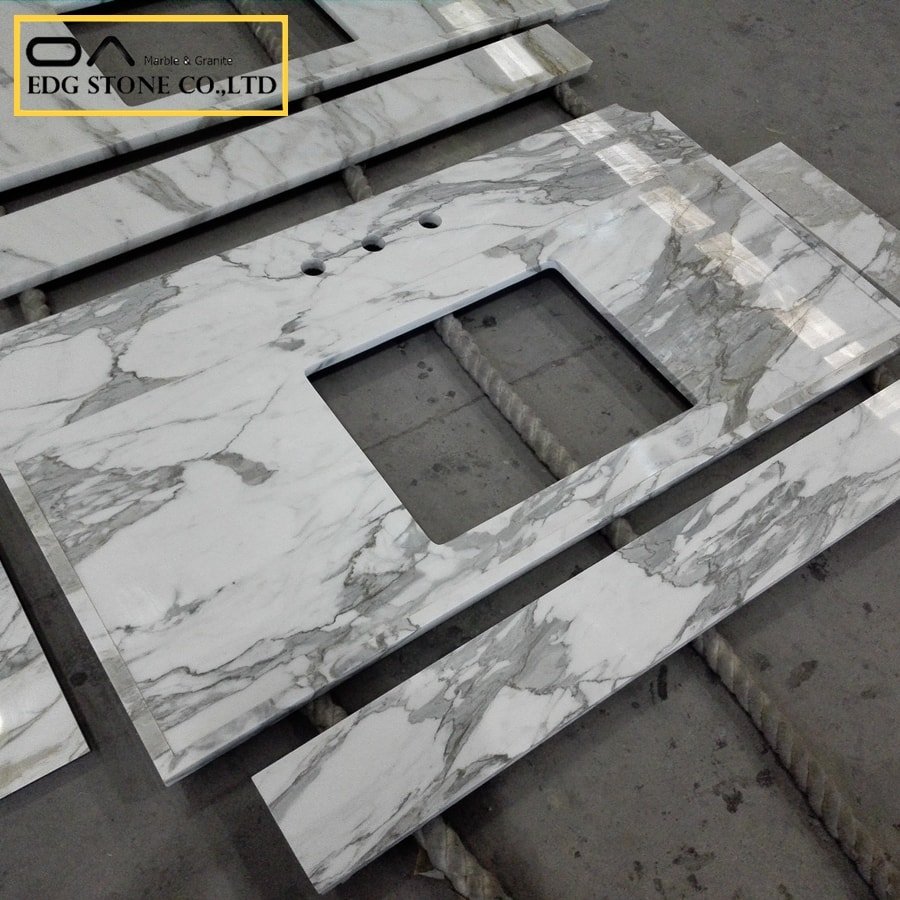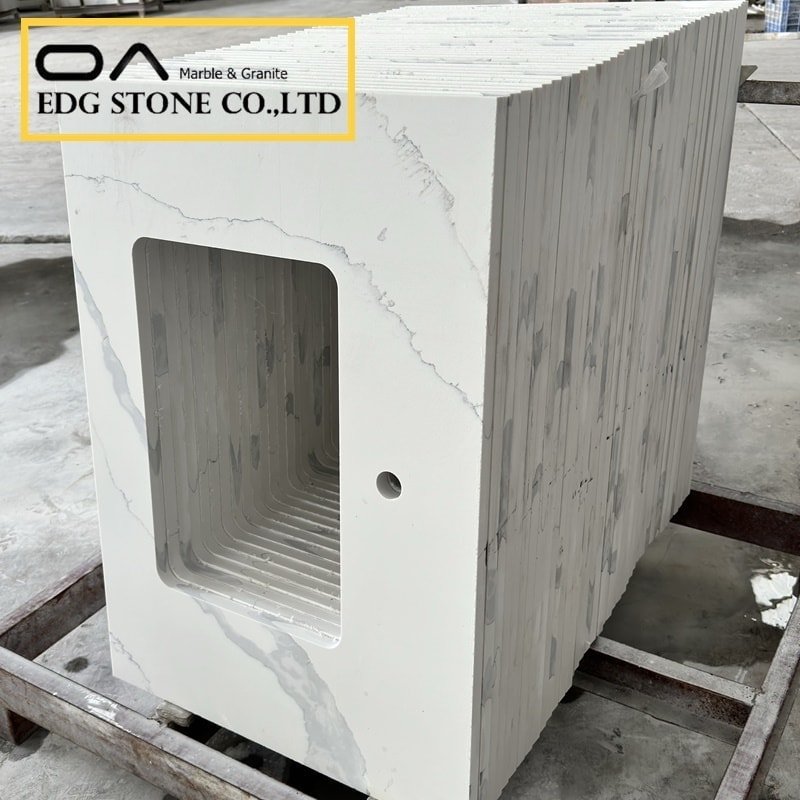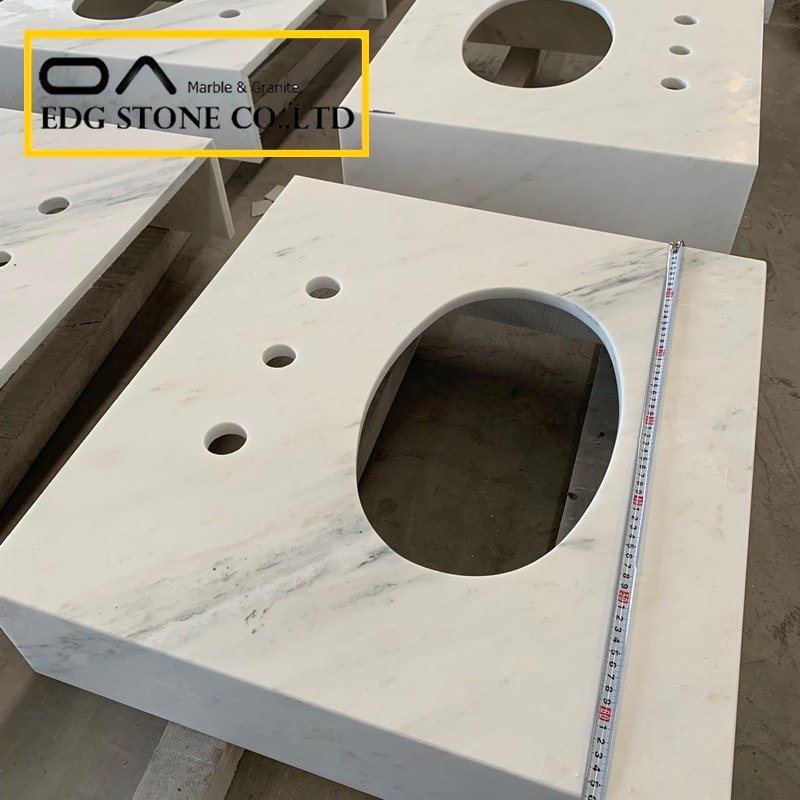At present, there are more and more owners who choose quartz stone as countertops. Why is quartz stone the first choice for countertops? Because quartz stone is a brand-new artificial stone product made of 93% quartz crystal, 7% resin, and other binders through artificial quartz equipment, it has been listed as a green environmental protection decorative stone by the country. Quartz stone has many advantages such as abrasion resistance, scratch resistance, high-temperature resistance, anti-permeability, zero formaldehyde, no radiation, etc. However, the disadvantage of quartz stone is that it is too expensive and difficult to process.
With the continuous improvement of the production technology and production capacity of my country’s quartz stone manufacturers, quartz stone plates have also developed from the previous single color to the current two-color, multi-color, and pattern, etc., giving us diversified choices, and the price of quartz stone is more affordable. For the quartz stone processing industry, there is no relevant standard, and even some small processing plants still use hand-held cutting machines for cutting materials. Quartz stone processing is actually an important part because it directly affects the service life of the overall countertop.
The processing of quartz stone countertops can be divided into cutting, opening, slicing, and polishing. Let’s take a look at the details that should be paid attention to. The drawing should be carefully compared with the drawing before cutting. To avoid dry cutting, use a water saw to open the material. Pay attention to the chipping of the pellets. When opening furnace holes and basin holes, avoid right-angle openings. Round-corner openings should be used to prevent later cracking due to heat or heavy blows. The splicing glue should use the original resin glue issued by the manufacturer. The most important thing is polishing. The quartz stone will often lose its original color during polishing. The darker the color, the more obvious, so start to apply the 500# water milling sheet, and then follow Use 1000#, 2000#, 3000# water abrasive pads for polishing.
